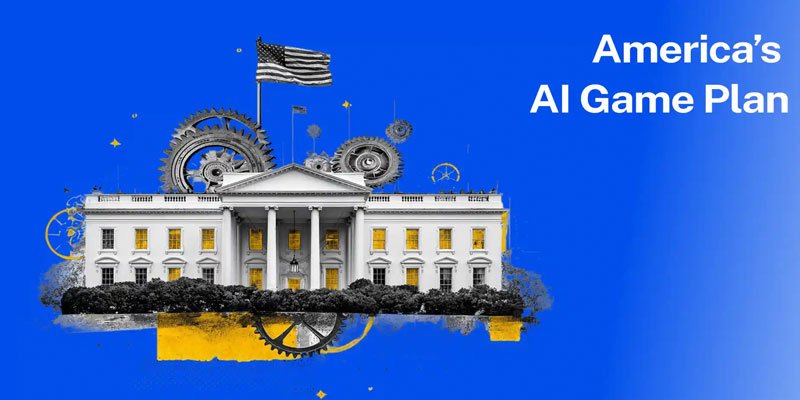
America’s AI Action Plan: Strategic Vision or Moral Abdication?
In July 2025, the Trump administration unveiled the America’s AI Action Plan, a bold blueprint positioning the U.S. as the global leader in artificial intelligence. Branded as a "national security imperative," the plan outlines America’s intent to achieve “unquestioned and unchallenged global technological dominance.” However, beneath its strategic foresight lies a troubling narrative of exclusion, technonationalism, and moral indifference.
The document treats AI as a geopolitical battleground, emphasizing competition over cooperation—particularly against China. Rather than fostering global partnerships, it advances a “gold standard or go home” ideology. The plan sidelines developing nations, multilateral engagement, and inclusive innovation, thereby undermining the collaborative spirit once central to American global leadership.
Deeply embedded in the plan is a protectionist stance: restricting AI exports, reshoring semiconductor production, and controlling open-source tools through licensing and security filters. This reflects a desire not just to secure infrastructure, but to dominate it. The absence of cooperative initiatives with the Global South, or mechanisms for equitable AI access, reveals a failure to address digital inequality.
Ethical values are notably purged. The plan eliminates references to diversity, inclusion, climate change, and civil rights—essential elements of responsible AI governance. This erases the work of ethicists and ignores structural inequalities that AI can worsen, especially among marginalized communities.
Though the plan claims to be “worker-first,” it shifts the burden of adaptation onto individuals without ensuring labor protections or addressing global job displacement. It prioritizes productivity over equity and economic growth over social wellbeing.
More troubling is its silence on humanitarian AI—there is no mention of AI in climate resilience, refugee healthcare, or education for underserved populations. In a world facing massive displacement and digital poverty, this absence signals a lack of moral responsibility.
Lastly, by criticizing multilateral institutions like the UN and OECD, and opting for bilateral deals and export-control blocs, the U.S. distances itself from inclusive global governance. In a multipolar world, ethical AI leadership demands multiperspectivity, reciprocity, and peace-building—not digital conquest.
America’s AI strategy reveals great technological ambition but lacks the moral imagination to guide it. If the U.S. is to lead the AI century, it must champion not only innovation but inclusion. The real race isn’t to dominate, but to uplift—to turn algorithms into instruments of empathy, not empire.









